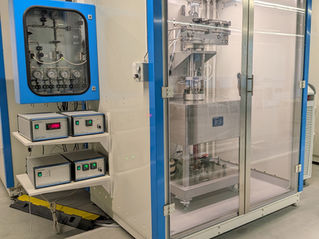STAY UPDATED ON OUR LATEST NEWS
Here you will find the latest updates on our industry, products, services, and events. Stay informed and check back often for the latest news and updates.



SERVICES TO HELP WITH RESEARCH
At Cormet, we offer a range of services to help you get the most out of your material and corrosion testing instruments. Whether you need help with instrument design, maintenance, or upgrades, we're here to support you every step of the way.
We understand that your testing needs may evolve over time, so we offer flexible services to meet your changing requirements.
CORMET
At Cormet, we understand the challenges you face in material and corrosion testing. That's why we've designed our instruments to provide you with reliable and consistent results in both laboratory and field environments. We're committed to supporting you every step of the way in your scientific endeavours.
PRODUCTS FOR CORROSION TESTING
Cormet's instruments are the perfect solution for those in the power generation, chemical, transportation, steel, and oil & gas industries looking to perform reliable and consistent corrosion testing and research.
We provide corrosion testing instruments tailored to university and industrial laboratories, so you can be sure that you have the necessary tools to meet your needs. With our instruments you will receive representative and reproducible results every time.
WHY YOU SHOULD WORK WITH CORMET
We want each of our customers to be sure that they are in good hands. To ensure our value to you, here are a couple of reasons why you should consider working with us.
QUALITY
Cormet's instruments are designed to provide you with reliable and consistent results. We focus on manufacturing high-quality products, without rushing or compromising.
EXPERTISE
With 30+ years of experience, no project is too complex for us. The solutions you need are designed by well-qualified professionals that will also guide you through using your new machine if needed.
ADAPTATION
Cormet provides testing instruments tailored to your specific needs, so you can be sure that you have the necessary tools for any kind of test.
VERSATILITY
Cormet has a diverse customer base, ranging from organizations to academic institutions. This demonstrates the versatility and effectiveness of Cormet's instruments across a variety of fields and applications.
Not seeing something you need?
Contact us, we tailor to out customers' needs.
Koivulehdontie 4
FI-01510 Vantaa, Finland
+358 9 566 09 50
+358 9 566 09 555
FREQUENTLY ASKED QUESTIONS
- 01
- 02
- 03
- 04








